Peace And Prejudice: How The Key To Peace Is The Same As The Key To Weight Loss
PEACE AND PREJUDICE: HOW THE KEY TO PEACE IS THE SAME AS THE KEY TO WEIGHT LOSS (Issue 31)
By Diane Gold
Peace among humans stems from sameness, not difference. When we are peaceful, things are harmonious. When we are prejudiced, there is unrest, internal to us and external within our world.
We all breathe the same air, have the same powerful epidermis to protect us (we share this with plants), respirate similarly, replenish regularly, get inhabited by viruses constantly (we share this one with plants and bacteria), are all subject to the perils of weather and do well when we honor ourselves.
BELIEF IN OURSELVES
So, with all these major similarities, what are our differences, other than melanin levels, pride in roots, levels of security, money and intelligence? It’s BELIEF IN OURSELVES, the level at which we LOVE ONE ANOTHER, tolerate, nurture, sanction, recognize and respect one another AND OURSELVES, the level at which we give our neighbor the same courtesy as our family, the same respect we should be giving to ourselves and our fellow humans.
 So what is the key to this tolerance that is the same for losing weight, gaining weight, stopping our urges, removing our prejudice? And how do we get it?
So what is the key to this tolerance that is the same for losing weight, gaining weight, stopping our urges, removing our prejudice? And how do we get it?
Those of us whose urges take us to eat too much, drink too much, use or do too much lack a certain security in and love for ourselves. These urges drive our chemicals inside to run in ways we have not yet grasped. Happily, we can learn to understand them and work with them and adjust them.
The same urge chemistry occurs in our body when we cannot tolerate someone else’s beliefs or any of the traits listed three paragraphs below. This chemical imbalance strips us of our ability to be socially acceptable; and we bash, malign, plunder someone else’s appearance or belief. This is social prejudice.
If my family teaches me to believe in the golden calf, your family teaches you to believe in the family religion and our neighbor’s family teaches their daughter to believe that she is the master and controls her own life; these three different beliefs exist. We can learn tolerance if it is doesn’t come naturally by remembering that each of us breathes the same air, eats the same food and gives birth the same way. How much we remember our sameness determines whether we have social prejudice or peace.
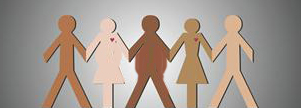 Similarly, the more we develop the ability to control our urges, such as eating chocolate, drinking soda or maligning a religion; the more we can exercise tolerance of ourselves and others.
Similarly, the more we develop the ability to control our urges, such as eating chocolate, drinking soda or maligning a religion; the more we can exercise tolerance of ourselves and others.
So what can we do to raise THE LOVE LEVEL (which comes from BELIEF IN OURSELVES) and give ourselves the love that we deserve that will help curb our urges? What will help our health, our ability to feel good, and help us love our bodies and minds, know that we are assets to the world, know that weight, skin color, style, thoughts, feelings, hairstyle, differences, size, lifestyle, height, preference, orientation, age, race, religion, politics, color, nationality, wealth, language, beliefs, birthplace, traditions, economics do not define whether we are kind, fun, funny, loyal, honest, devoted, confident, uplifting, empathetic, charitable, attentive, considerate, dependable, generous, motivating, patient, perceptive, thoughtful, tolerant, understanding, warm and caring?
And what can we do to remove social prejudices when they appear?
SEEING OUR HOMOGENEITY, THE BIG ACTION STEP
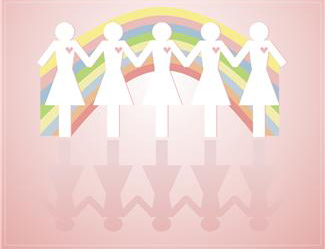 The BIG ACTION STEP, should we choose to take it, is that we must look at our homogeneity. We must celebrate our sameness and be enlightened by it.
The BIG ACTION STEP, should we choose to take it, is that we must look at our homogeneity. We must celebrate our sameness and be enlightened by it.
What if we used it to further our belief system and strengthen our tolerance?
What if we used it to help us be strong individually?
We are all a part of a body of humans and, I believe, can find a way to peace.
Whether we are too slim, too large or just right; we all enjoy the security of shelter, clothing that makes us feel beautiful, friends and family who really care for us; and we all love our own individual hobby, creative passion and cause.
 If I could animate, I would draw a giant globe with people in every country representing all of us. Every time any one of us executed a prejudicial act, even if against ourselves; one of the cutout figures would collapse, only to be regenerated by a positive act, such as generosity or forgiveness. If we saw this visual representation on an ongoing basis, which measured our love and hate, we might more easily cherish, forgive and love each other.
If I could animate, I would draw a giant globe with people in every country representing all of us. Every time any one of us executed a prejudicial act, even if against ourselves; one of the cutout figures would collapse, only to be regenerated by a positive act, such as generosity or forgiveness. If we saw this visual representation on an ongoing basis, which measured our love and hate, we might more easily cherish, forgive and love each other.
Most of us don’t think that feeling bad about ourselves or treating ourselves badly is a negative act. It is, though, an act of social prejudice against ourselves, when we judge ourselves in comparison to runway models if we are not, or in comparison to the lifestyle of the latest female self-made billionaire if we are not.
We say what we feel for ourselves doesn’t affect others, but this is not the truth. Aside from the fact that we are all in this world together, everyone we contact is affected by our good or bad attitude. So how do we mend a bad attitude or social prejudice?
FORGIVENESS, THE NEXT ACTION STEP
1) Forgiving ourselves for whatever we think is wrong with us
2) Forgiving what we did wrong
3) Forgiving someone for having a different trait or belief
4) Forgiving someone for a bad act
5) Forgiving ourselves for being prejudiced against someone
are very hard to do, but great steps to take.
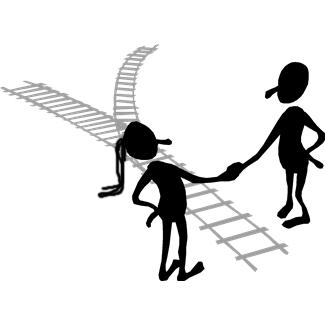 I can think of the many times I have said,
I can think of the many times I have said,
“I forgive him,”
in my head. I have also said,
“I forgive you,”
in person, to someone in my life who did not treat me well. The words have not created absolute forgiveness in me, but it is a work in progress. It is easy for me to forgive myself for the feelings of resentment I still have, but it is hard to forgive with full sincerity.
It is almost unfathomable for me to think how hard it would be to forgive someone who had physically harmed a family member. But, that is how hard peace is.
Over 90% of the people in the United States have a belief system with one deity. It could be as much as 92%. We also believe that this deity does not make mistakes. So, if we are in this category; we know that our lives are not mistakes, so we must forgive ourselves and celebrate our individual situations.
Less than 10% of the population in the United States is firmly rooted in the fact that we are strong, self-sufficient individuals who are part of the balance or order of nature that does not include a deity. This group could be smaller than 8%. (This group often does not list its participants because of the prejudice against it, so statistics are hard to confirm.) If we are in this group, we know we are good and worthwhile by the principles by which we live. Therefore we must forgive ourselves and celebrate our individual situations.
CONCLUSION
Those of us who are tolerant of our similarities must remind those who are not. It is difficult to bring these subjects to the attention of others because feelings run so strongly in each direction.
Prejudice of any kind is prejudice. Some people frown upon people who eat a lot. Others think they are queens. As we grow our spiritual library, we come to terms with how we see ourselves and how we see our sameness. Often times, unless we are experiencing the strife and misery that comes from prejudice, we find it hard to relate to it.
Here’s an example:
If I have grown up an extra, extra love size my whole life, I know what it’s like to be teased about my weight. I am so busy feeling bad about being teased that I do not realize that the teaser’s insecurity is causing the intolerant behavior.
I am grown up, I open a company, have 50 employees. No one has teased me in a long time. One of the people who has been hired has a twitch, which I continually joke about with the other workers. I only consider myself and never consider that the person with the twitch is always in earshot when I tease. She feels pain when I tell my jokes. Why am I doing the same behavior that people did to me? Don’t I remember how it feels? What feeling prompts this intolerance and insecurity on my part?
It’s all about BELIEF IN MYSELF. Poking fun at the twitcher buries the pain I felt when I was teased. It also makes me feel powerful now when people gather ’round and laugh at my jokes. What I don’t consider is that the employees may be gathering around and laughing because they feel sorry for my power tripping from pain. Others may be getting comic relief from someone else’s pain, also a common, but not admirable, human trait. Finally, most of the group is gathering because I am the boss, and it would be impolite not to gather.
SMALL BUT IMPORTANT ACTION STEPS
Here are some small daily action steps to go along with the SEEING HOMOGENEITY and FORGIVENESS, above. When we familiarize our mind to kindness, we become kind. On the other side, when we fuel our intolerance, our prejudice (toward ourselves and others) grows.
1) Upon awakening every day, take 10 seconds to acknowledge that we are as wonderful as our heroes, our love interest, the person we most want to emulate and our role model. This builds self-confidence in a subtle but constant way.
2) After the first 10 second exercise, take 10 seconds to acknowledge that there are no mistakes in the natural order of things. Therefore, we are exactly who we are supposed to be. This will build strength that we are a firm part of the world plan.
3) As we are sitting up from our sleeping position, take 10 seconds to realize our good fortune, such as having the use of our limbs, having the use of our senses, having whatever we do have. Each of us will cherish something else, but this gratitude is important to experience. Gratitude brings humility which brings understanding and peace.
4) Sometime during the week, even if it’s only once:
a. Tell a joke to someone sad
b. Give a homeless person a book
c. Go to http://theanimalrescuesite.com and click a button to give a free bowl of food to an animal. (There are many sister sites here for other causes of your choice.)
The secret behind this action is that, as we are clicking our support for some outside cause, we are curbing our appetite for that very moment and making a difference to someone else. This type of action leads us to develop our character and become stronger to reach our goal in the food department. Both curbing our urge and building our character lead to the likelihood of our being a tolerant member of society.
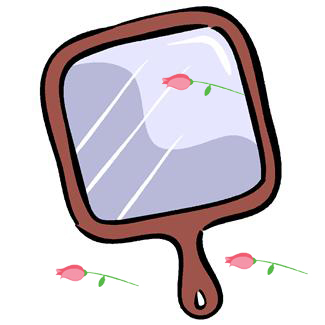 5) Once a day, we should look in the mirror at our lips smiling and know that we have just seen a very worthy human being.
5) Once a day, we should look in the mirror at our lips smiling and know that we have just seen a very worthy human being.
Awareness of Homogeneity + Forgiveness = Urge Control + Peace, Inside and Out.
FEEDBACK
Please leave your comments below. We truly value all of them.
DIANE GOLD, AUTHOR
Diane Gold, Founder of Warriors of Weight, Moms For Healthy Daughters, is a mentor in tai chi, kung fu and meditation, a music, fitness and stress expert and a dedicated mom. She is excited about discovering that the key to peace resembles the key to urge mechanics. She says,
“The key is examining ourselves. When we are willing to look at our urges, we can see our true selves in the mirror. With time, we can mold ourselves to be more in the direction that we wish. It may not be easy, and it will take time. In a lifetime journey, there can be no rush.”

 This coming Saturday, April 28, is my birthday. Oh, wait. Broadcasting this fact is the very opposite of our message here: that of getting away from me, me, me. This article is about the power we have as developed individuals to make a difference on global issues.
This coming Saturday, April 28, is my birthday. Oh, wait. Broadcasting this fact is the very opposite of our message here: that of getting away from me, me, me. This article is about the power we have as developed individuals to make a difference on global issues.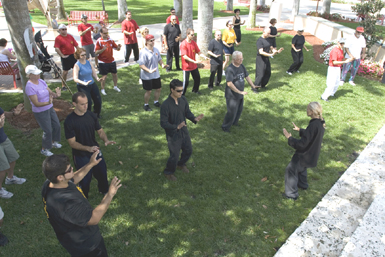 I like that image. Let this flamboyant vision not lead us away from the grand ultimate purpose of tai chi in 2012, which is not a display for publicity, a way to get a date, a way to be cool or marketing for consumerism; although all of these things may happen as a result of doing the training in a public place. The point is to spread peace, harmony and unity through exposing people to movement that changes mindset leading to global action. Change in mindset, as with any discipline, is a process.
I like that image. Let this flamboyant vision not lead us away from the grand ultimate purpose of tai chi in 2012, which is not a display for publicity, a way to get a date, a way to be cool or marketing for consumerism; although all of these things may happen as a result of doing the training in a public place. The point is to spread peace, harmony and unity through exposing people to movement that changes mindset leading to global action. Change in mindset, as with any discipline, is a process. PASSION
PASSION If I do tai chi and teach 8 students, then 8 minds get changed. If these 8 students have 8 students, then 64 minds get changed. If these 64 have 8 students, then 512 minds get changed. If this group of 512 goes to 1 of the 300 World Tai Chi And Chi Kung Day events and mingles with the 512 students of each of 10 other teachers; that’s 5,632 minds at 300 events. That’s over a million changed minds, which is the power of community.
If I do tai chi and teach 8 students, then 8 minds get changed. If these 8 students have 8 students, then 64 minds get changed. If these 64 have 8 students, then 512 minds get changed. If this group of 512 goes to 1 of the 300 World Tai Chi And Chi Kung Day events and mingles with the 512 students of each of 10 other teachers; that’s 5,632 minds at 300 events. That’s over a million changed minds, which is the power of community.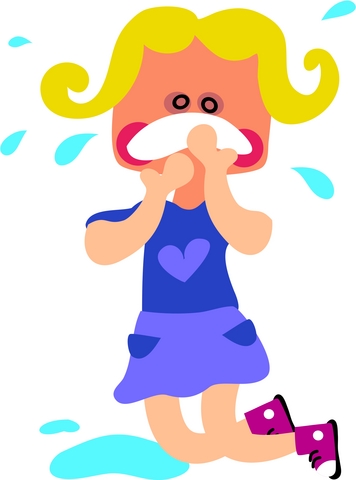 Picture a child screaming in a supermarket for a candy bar. Now put yourself in the place of the child’s parent. What are you thinking or feeling? If you are like almost half of the families we serve, you might be thinking what a catastrophe this is. You are becoming anxious and feel that all eyes are on you. You might also be feeling judged as a bad parent and can’t wait for this to stop. And because this seems to happen so often no matter what you try, you think that your child is just not capable of behaving. Despite your better judgment you decide to give your child the candy because you know the tantrum will end. Negative thoughts about your skills as a parent and perhaps about your child’s ability to improve seem to get in the way of good parenting skills—sometimes “giving in” just to keep the peace.
Picture a child screaming in a supermarket for a candy bar. Now put yourself in the place of the child’s parent. What are you thinking or feeling? If you are like almost half of the families we serve, you might be thinking what a catastrophe this is. You are becoming anxious and feel that all eyes are on you. You might also be feeling judged as a bad parent and can’t wait for this to stop. And because this seems to happen so often no matter what you try, you think that your child is just not capable of behaving. Despite your better judgment you decide to give your child the candy because you know the tantrum will end. Negative thoughts about your skills as a parent and perhaps about your child’s ability to improve seem to get in the way of good parenting skills—sometimes “giving in” just to keep the peace. Here we taught them to become aware of the interfering thoughts and taught them skills to either distract themselves (sometimes with humor) or perhaps substitute the negative thoughts with positive ones (“I have a plan for dealing with this tantrum and things will get better.”). They learned both how to help their child but also how to be more positive and hopeful in their application of these plans.
Here we taught them to become aware of the interfering thoughts and taught them skills to either distract themselves (sometimes with humor) or perhaps substitute the negative thoughts with positive ones (“I have a plan for dealing with this tantrum and things will get better.”). They learned both how to help their child but also how to be more positive and hopeful in their application of these plans. On the other hand, parents who received the optimism training did not concede to all of their child’s demands and persisted in getting their children to do things like put their toys away or get dressed without problems. Their optimism training helped them to keep it up and not concede.
On the other hand, parents who received the optimism training did not concede to all of their child’s demands and persisted in getting their children to do things like put their toys away or get dressed without problems. Their optimism training helped them to keep it up and not concede.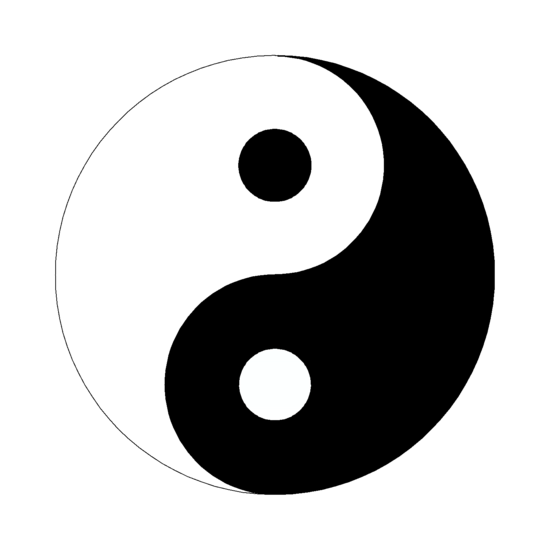 One of the greatest tools to put us in a state of readiness is tai chi. What is it, exactly? It’s a method of exercise that teaches us to be patient, prepared, precise and powerful at all times. It’s a mind/body program that gives us a place to begin. We build a foundation of understanding how to be stable on our journey, and time reinforces the lessons as long as we do a little movement.
One of the greatest tools to put us in a state of readiness is tai chi. What is it, exactly? It’s a method of exercise that teaches us to be patient, prepared, precise and powerful at all times. It’s a mind/body program that gives us a place to begin. We build a foundation of understanding how to be stable on our journey, and time reinforces the lessons as long as we do a little movement. Tai chi requires us to slow down and move like a wave in a giant ocean of water. If we imagine the lines in a profile of the ocean, we can see each line rolling into the next. This is analogous to each body system moving harmoniously with the other. Here is a graphic representation of this concept.
Tai chi requires us to slow down and move like a wave in a giant ocean of water. If we imagine the lines in a profile of the ocean, we can see each line rolling into the next. This is analogous to each body system moving harmoniously with the other. Here is a graphic representation of this concept.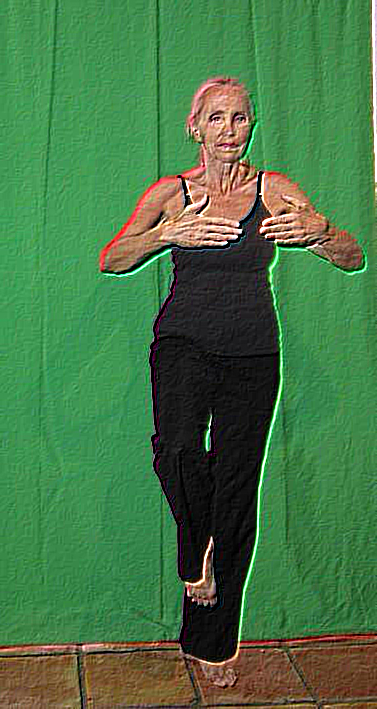 1) Stand straight with legs as close together as possible.
1) Stand straight with legs as close together as possible. One way we measure our weight is by using the Body Mass Index. A great way to measure what this index defines is to feel whether or not we can pinch much excess skin around our body. If we can, we are probably carrying extra weight (which scientists have deemed is unhealthy for our organs, our body systems and emotionally), and we have just used a less clinical, simpler method of defining whether our body mass index is high. There are suggestions below as to what to do should we find this in ourselves. The result of this index is what people usually see when they look our way.
One way we measure our weight is by using the Body Mass Index. A great way to measure what this index defines is to feel whether or not we can pinch much excess skin around our body. If we can, we are probably carrying extra weight (which scientists have deemed is unhealthy for our organs, our body systems and emotionally), and we have just used a less clinical, simpler method of defining whether our body mass index is high. There are suggestions below as to what to do should we find this in ourselves. The result of this index is what people usually see when they look our way. Craving food is like any other urge. It is physiological, (1) sometimes set off by emotions which activate chemicals and (2) sometimes set off by chemicals which trigger emotions and reactions. We must become educated and sensitive to our situation, instead of taking the ostrich approach. What I mean is that we can feel great about ourselves with a little book knowledge and a little self-love. Knowledge truly gives us the power we need not to bury our heads in our pillow in hopelessness the same way as the ostrich in this graphic is burying his head in the sand. There is a prejudice about the ostrich from which this image comes. He does not bury his head in the sand. The male ostrich digs such a deep hole for the protection of the ostrich eggs [5-6 feet] that it looks as if his head is buried in the sand. It is not. To avoid making judgments without full awareness, we need to educate ourselves.
Craving food is like any other urge. It is physiological, (1) sometimes set off by emotions which activate chemicals and (2) sometimes set off by chemicals which trigger emotions and reactions. We must become educated and sensitive to our situation, instead of taking the ostrich approach. What I mean is that we can feel great about ourselves with a little book knowledge and a little self-love. Knowledge truly gives us the power we need not to bury our heads in our pillow in hopelessness the same way as the ostrich in this graphic is burying his head in the sand. There is a prejudice about the ostrich from which this image comes. He does not bury his head in the sand. The male ostrich digs such a deep hole for the protection of the ostrich eggs [5-6 feet] that it looks as if his head is buried in the sand. It is not. To avoid making judgments without full awareness, we need to educate ourselves.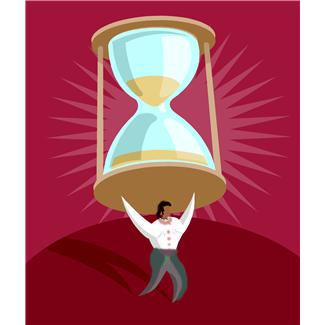 In the past weeks, I have been hearing over and over again how people don’t have the time in their busy lives to work on their weight. I am going to talk about weight loss, but the same applies to weight gain of any kind. It also applies to many of life’s weights such as feeling sad, angry, bullied, alone or misunderstood.
In the past weeks, I have been hearing over and over again how people don’t have the time in their busy lives to work on their weight. I am going to talk about weight loss, but the same applies to weight gain of any kind. It also applies to many of life’s weights such as feeling sad, angry, bullied, alone or misunderstood. 1) GRATITUDE. The most important part of the day occurs as it begins. We get a chance to rejoice, to jump up and down with glee, to fill our hearts with warm happiness. Why? Because we awoke and have another shot at growing, creating something great, helping someone out and getting help ourselves.
1) GRATITUDE. The most important part of the day occurs as it begins. We get a chance to rejoice, to jump up and down with glee, to fill our hearts with warm happiness. Why? Because we awoke and have another shot at growing, creating something great, helping someone out and getting help ourselves. 6) TOP OF THE AGENDA. When we want to do something, we usually schedule it in, right? Think about what happens when we feel like eating a particular food. Funny how we have no problem scheduling that in. Yet, when we want to remove some pounds from our stomach by doing some tai chi or fitness activity that would take less time than it would take to go get the food we craved, we don’t have (make) the time.
6) TOP OF THE AGENDA. When we want to do something, we usually schedule it in, right? Think about what happens when we feel like eating a particular food. Funny how we have no problem scheduling that in. Yet, when we want to remove some pounds from our stomach by doing some tai chi or fitness activity that would take less time than it would take to go get the food we craved, we don’t have (make) the time.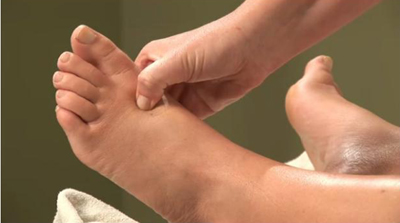
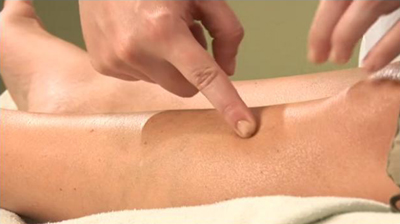 Now, Stomach-36 is a common point for regulating digestion. It has an auto regulating effect on the digestion, meaning that it can be used for things like diarrhea and constipation.
Now, Stomach-36 is a common point for regulating digestion. It has an auto regulating effect on the digestion, meaning that it can be used for things like diarrhea and constipation.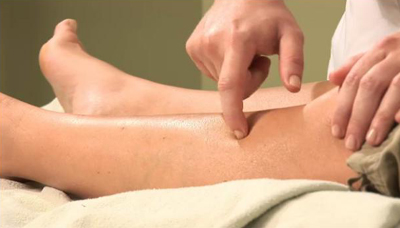 Another technique, known as tapping, is also effective here. You just want to tap on the point for about 30 seconds, at a time. Now, like all points, this point is found bilaterally on the body. So, you can find it on both legs. [Do it on both legs.]
Another technique, known as tapping, is also effective here. You just want to tap on the point for about 30 seconds, at a time. Now, like all points, this point is found bilaterally on the body. So, you can find it on both legs. [Do it on both legs.]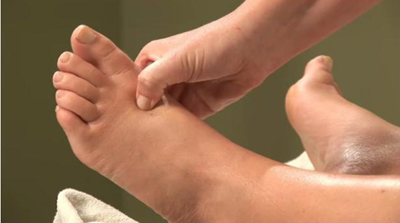 So, to locate Liver-3, it is in the hollow, between the first and second metatarsal bones. And again, your finger will kind of fall into a dip here, just before the bones begin to close. Now, Kidney-1 is on the bottom of the foot, almost directly below Liver-3.
So, to locate Liver-3, it is in the hollow, between the first and second metatarsal bones. And again, your finger will kind of fall into a dip here, just before the bones begin to close. Now, Kidney-1 is on the bottom of the foot, almost directly below Liver-3.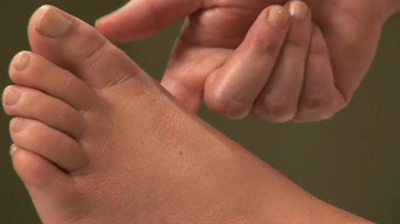 And the tapping technique is very useful for calming a mind that just won’t quit so that you can have better awareness and make good choices for yourself, as far as diet and exercise. I recommend doing this daily.
And the tapping technique is very useful for calming a mind that just won’t quit so that you can have better awareness and make good choices for yourself, as far as diet and exercise. I recommend doing this daily. I know that’s not a serious amount of weight compared to other people, but that was my burden and a lot of trouble for me. Every morning, I would sit up on my piece of foam (no bed in those days) and hold my gut to see how my weight was doing. Since that was the first place weight settled on me, I wanted to know how much excess I had immediately upon awakening. I would be able to calculate right away where I was, and, maybe, tiptoe over to the scale in my studio apartment and weigh in. I always knew that the day had a gray cloud over it when I woke up and had that gut, but I went about my day of getting my music therapy training, just the same.
I know that’s not a serious amount of weight compared to other people, but that was my burden and a lot of trouble for me. Every morning, I would sit up on my piece of foam (no bed in those days) and hold my gut to see how my weight was doing. Since that was the first place weight settled on me, I wanted to know how much excess I had immediately upon awakening. I would be able to calculate right away where I was, and, maybe, tiptoe over to the scale in my studio apartment and weigh in. I always knew that the day had a gray cloud over it when I woke up and had that gut, but I went about my day of getting my music therapy training, just the same.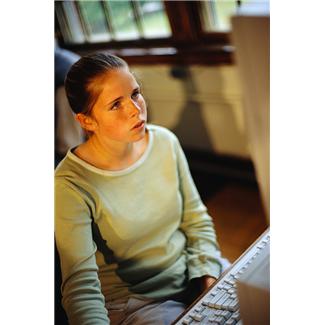 In all three settings, some students are very much connected with fellow students through electronic messaging, electronic tracking of friends’ physical whereabouts through standard phone apps that identify of their friends; others of us try to be invisible in school, hibernate in our homes, only showing our head when we have study groups or meetings by webcam, even while getting college degrees or running full time careers.
In all three settings, some students are very much connected with fellow students through electronic messaging, electronic tracking of friends’ physical whereabouts through standard phone apps that identify of their friends; others of us try to be invisible in school, hibernate in our homes, only showing our head when we have study groups or meetings by webcam, even while getting college degrees or running full time careers. Or, if someone is looking, waving is always good. Then, get up and continue along your way. As a reminder, put a tiny sign on the wall near your feet in the bedroom, across from wherever you look in the bathroom, by the bathroom exit, in the kitchen, at your chair and, definitely, on your phone.
Or, if someone is looking, waving is always good. Then, get up and continue along your way. As a reminder, put a tiny sign on the wall near your feet in the bedroom, across from wherever you look in the bathroom, by the bathroom exit, in the kitchen, at your chair and, definitely, on your phone.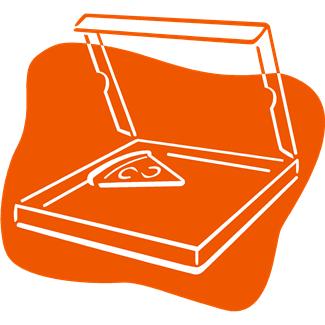 G: I have bought myself a pizza. And thought that I’m gonna have four slices. And I taste the first couple of bites. And then I go into a kind of an automaton routine. And then I look down, and almost all four of them are gone. And I don’t remember having slice number two, slice number three, or even the bites in between there. I don’t remember the experience. I’m very angry at myself for doing that. And because I wasn’t really there, I’m still hungry. And, so it keeps going.
G: I have bought myself a pizza. And thought that I’m gonna have four slices. And I taste the first couple of bites. And then I go into a kind of an automaton routine. And then I look down, and almost all four of them are gone. And I don’t remember having slice number two, slice number three, or even the bites in between there. I don’t remember the experience. I’m very angry at myself for doing that. And because I wasn’t really there, I’m still hungry. And, so it keeps going. S: Yeah, we were talking about it as though it only happens with food that’s not so great for you. But, it could happen with a salad, too. Right?
S: Yeah, we were talking about it as though it only happens with food that’s not so great for you. But, it could happen with a salad, too. Right? G: What do you think this has to do with our early table experiences? Eating at the table in my house was not very comfortable. It’s something that I learned that it’s really helpful to do as an adult and, actually, not all that long ago.
G: What do you think this has to do with our early table experiences? Eating at the table in my house was not very comfortable. It’s something that I learned that it’s really helpful to do as an adult and, actually, not all that long ago. S: An orange is a particularly wonderful thing to do or like a tangerine. Something that’s easy to peel. The first thing to do is to take a look at it. You want to experience this food with all your five senses. You’re going to take some time, maybe 20 minutes, to fully experience this orange, or an apple, whatever it is.
S: An orange is a particularly wonderful thing to do or like a tangerine. Something that’s easy to peel. The first thing to do is to take a look at it. You want to experience this food with all your five senses. You’re going to take some time, maybe 20 minutes, to fully experience this orange, or an apple, whatever it is.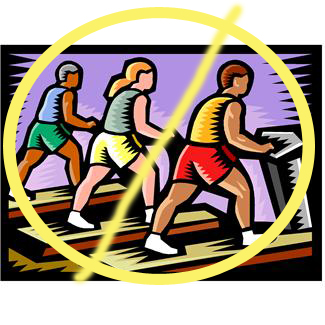 The obvious secret weapon that meditation offers is that it doesn’t require working out or body motion, often dreaded when we want or need to lose weight because we feel too uncomfortable to move or we’re dismal. There’s no big effort to get it started. The only thing moving is internal, it only takes a minute and it makes you feel good.
The obvious secret weapon that meditation offers is that it doesn’t require working out or body motion, often dreaded when we want or need to lose weight because we feel too uncomfortable to move or we’re dismal. There’s no big effort to get it started. The only thing moving is internal, it only takes a minute and it makes you feel good.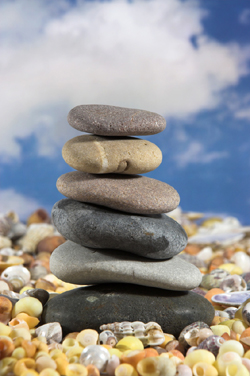 Imagine if every time we felt stress of some sort, we could do half a minute of meditation, and the stress would go away. Our emotional eating would reduce once we learned that a tiny taste of the meditative mind could give us a different perspective which could help reduce food cravings.
Imagine if every time we felt stress of some sort, we could do half a minute of meditation, and the stress would go away. Our emotional eating would reduce once we learned that a tiny taste of the meditative mind could give us a different perspective which could help reduce food cravings.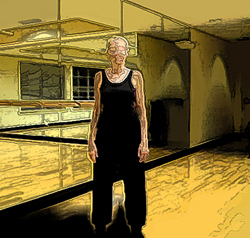 1) Stand with feet shoulder width apart.
1) Stand with feet shoulder width apart.





